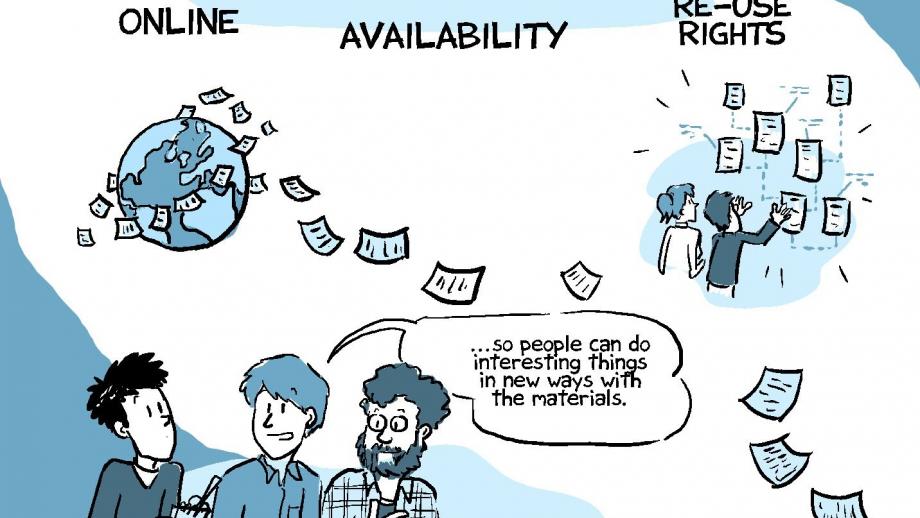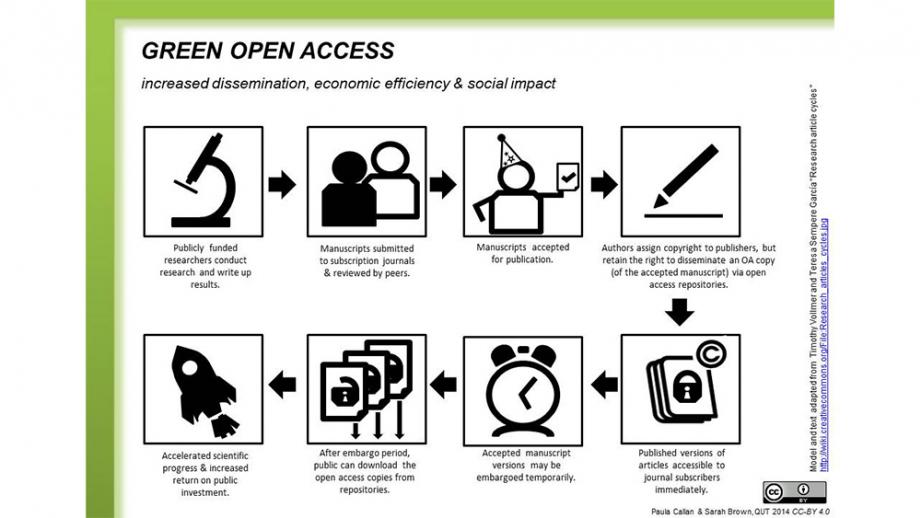By publishing open access, you are providing free, unrestricted online access to scholarly materials.
This allows a range of people to see your work, who might otherwise not have access – including professional practitioners, industry workers, and people in institutions and countries who are unable to afford subscriptions.
There are many avenues for publishing open access. A good resource is the Directory of Open Access Journals (DOAJ), an extensive index of diverse open access journals from around the world.
This guide is a useful resource for those seeking information about open access monograph publishing. Watch this short video to gain a broader understanding of open access publishing.
Fully open access journals
Publishing in an open access journal often means an article is assigned a creative commons licence permitting it to be distributed openly across a number of networks. You may be required to pay the publisher an upfront fee, or author processing charge (APC), to make the work openly available on the web. Publishing in this way can also be referred to as Gold Open Access (JPG, 111 KB).
Subscription-based journals
Publishing in a traditional subscription-based journal means your published work is immediately available to journal subscribers.
Articles published in these journals can still be made open access by making a pre or post print version of your article available in an open access repository such as the University's Open Research Repository. This form of publishing can also be referred to as Green Open Access (JPG, 112 KB), or self-archiving.
Alternatively, an author payment charge (APC) can be paid for an article in a subscription journal to be made open access in that journal - this is known as hybrid publishing.
Paying for publication
Read and Publish agreements
Read and Publish (RAP) agreements are ‘transformative’ agreements that combine the cost of reading (closed, subscription access) and publishing (Article Processing Charges (APCs)). The end goal of RAP agreements is a fully open access publishing environment.
The ANU Library is participating in over a dozen RAP agreements, which enables Australian National University authors to publish accepted articles into eligible journals without paying an APC fee.
Details for each of these agreements can be accessed in our Read and Publish Agreements guide.
These agreements cover the cost of open access publishing in thousands of journals. However, if the University does not have an agreement with your preferred publisher, you should check with your college research staff for available funds, and make sure you know your funder’s policy regarding the use of grant money for paying for publication.
Predatory publishing
Predatory publishers exploit the open-access model in which the author pays. They run conferences and journals with low or no peer review or other quality control mechanisms.
How can you prevent this happening to you?
- If you haven't heard of the journal or conference, check with a colleague or ask your local librarian.
- Don't believe the website - ask your colleagues and look at indicators of journal impact.
- Don't respond to unsolicited emails - choose the journals you wish to submit to.
Find out more details in our Publish and prosper guide.










